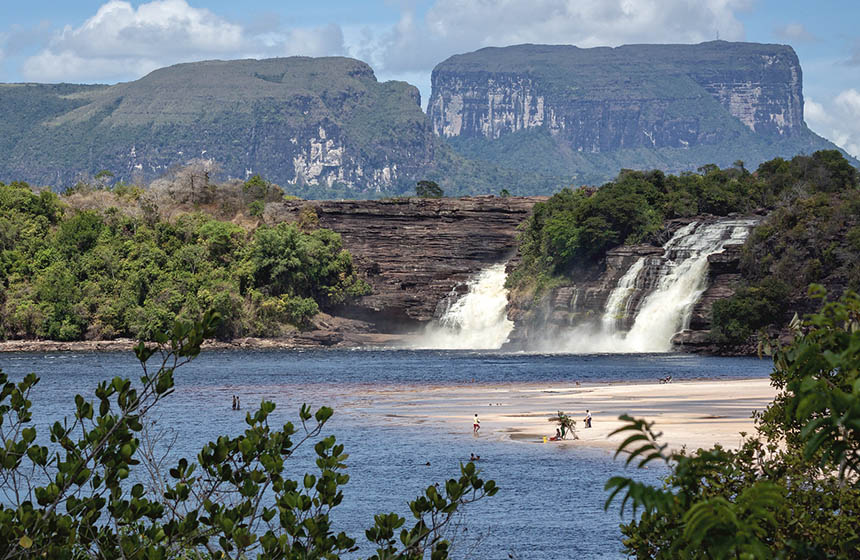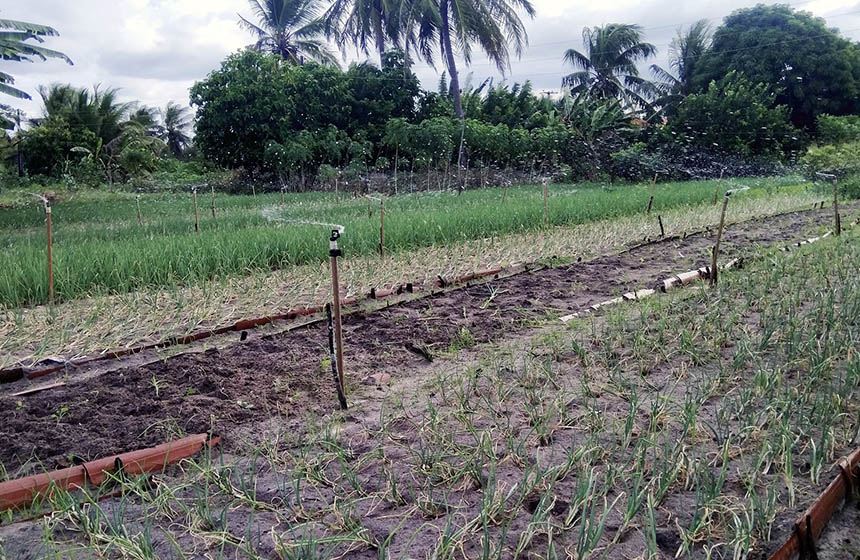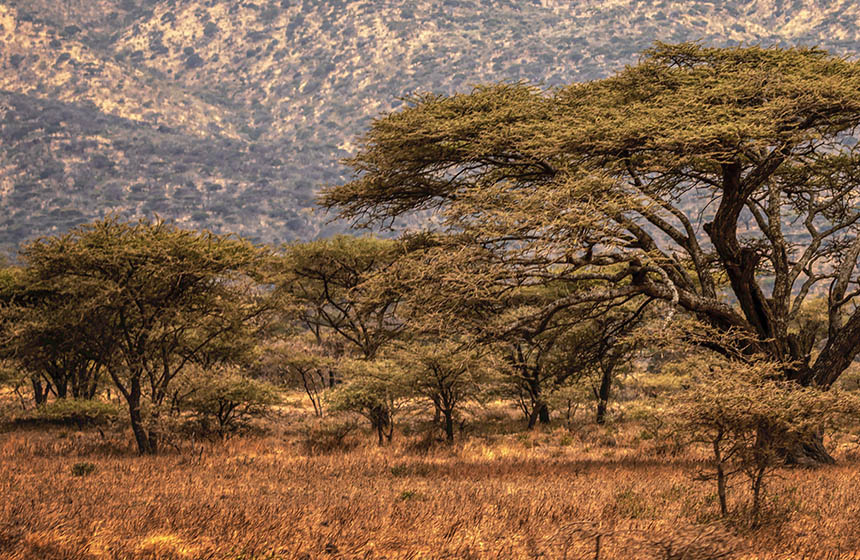Indigenous traditional use of fire for conservation and adaptation
Researchers empirically tested the potential for traditional indigenous fire management methods to aid in conservation and adaptation of the Canaima National Park. The Pemón people have used a method of fire management that creates a mosaic of patches of land at various stages of re-growth that serve as fire breaks for other areas.
Nature-based Intervention:
Researchers assessed the potential for a modified yet maintained version of the traditional fire management scheme in the Canaima National Park. Researchers simulated traditional Pemón fire management methods by burning a series of plots of savanna at different intervals over a seven-year period to observe the firebreak and conservation potential of this practice. The researchers indeed found that the use of the traditional strategy of fire management could assist in the conservation of local forests, as burning in savannas near forest borders could help avoid devastating wildfires.
Overview of context and outcomes:
The Pemón Amerindians are the traditional inhabitants of the territory within the Canaima National Park. They have historically used fire to clear forest for cultivation, cleaning and removal of vegetation, visual communication, keeping dangerous animals away, hunting, and fishing. Research in other tropical savannas has shown that fire exclusion can lead to the proliferation of forests. However, without fire these forests become prone to even more devastating fires, thus evoking the merit of fire management practices. Over generations, the Pemón people have developed a complex system of burning in a mosaic pattern that maintains different patches of land in different states of re-growth. The savanna patches burnt more recently serve as firebreaks for other areas. However, the more concentrated settlement patterns of the Pemón in recent decades, combined with an increased forest vulnerability to climate change, has disrupted this method of fire management leading to the over-use of fire. Ultimately, researchers found that linking traditional and scientific knowledge was a credible way forward for the formulation of effective fire management.
Case effectiveness on
Climate change
The analysis found that burned patches required three to four years to be able to be burned again, indicating the usefulness of a patchwork fire management scheme as firebreaks for surrounding areas.
Ecosystem health
Ecological effect: PositiveThe behavior of land exposed to the fire management regime yielded a variety of results with regard to species abundance and composition and biomass recovery.
Socioeconomic outcomes
The integration of indigenous ecological practices into environmental management strategies can help empower those communities in their roles as active stewards of the land.
Governance
A collaboration between the Pemón people, government agencies and park administrators is what as called for by the research team, as current models have these actors often working toward different fire management goals.
Finance
The research into the use of this technique was funded by the National Fund for Science and Technology of Venezuela.
Monitoring and evaluation
Monitoring was conducted by the scientific team to test the impacts of fires on the landscape burned with different strategies. These efforts could be further benefitted by more extensive long-term monitoring strategies.
Trade-offs and limitations
Increased implementation of collaborative management strategies could be beneficial to the execution of successful fire management schemes.
Ecosystem type
- Tropical & subtropical grasslands
Climate change impacts addressed
- Wildfire
Instigators
- Research institutions
Societal challenges
- Biodiversity conservation
- Climate change adaptation
- Disaster risk reduction
Outcomes
- Food security: Not reported
- Water security: Not reported
- Health: Not reported
- Local economics: Not reported
- Livelihoods/goods/basic needs: Not reported
- Energy security: Not reported
- Disaster risk reduction: Positive
- Rights/empowerment/equality: Not reported
- Conflict and security: Not reported
- No. developmental outcomes reported: 3
Resources
Read resource 1Literature info
- Peer reviewed




